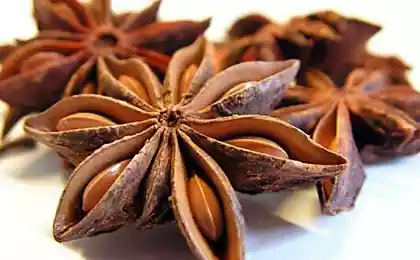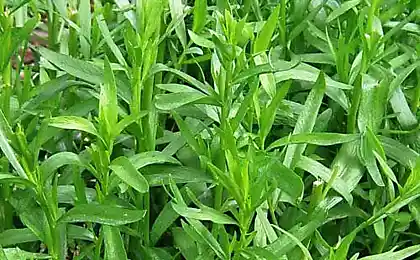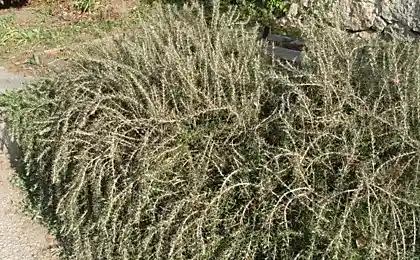532
Rosemary in medicine, cooking and decor

фото:www.labastidedegrignan.com
Beautiful grass with a sonorous name of rosemary is used in cooking and medicine. This plant is rich healthy antioxidants and essential acids. It spread around the world from the Mediterranean. Rosemary — evergreen shrub. Every person should be aware of those unusual properties that have a popular seasoning, as well as the fact that natural remedies are not only useful, but in some cases harmful, particularly with excessive interest in them.
Rosemary prefers dry, rich in alkali soil. It prefers a Sunny climate, and grows in places protected from strong winds. The plant reaches a height of 1.5 — 3 meters. It shoots upwards, the young are inferior in height to his older brothers. They are covered with narrow needle-like leaves that reach about 2.5 inches in length. The leaves are dark green and their underside is grayish. The flowers of rosemary Navy blue appear in early summer. About these and other useful and interesting properties of rosemary is said a lot on resource Nutrition And You.
The flowers and leaves of rosemary possess a pungent aroma reminiscent of camphor. Rosemary is not only used in culinary and medicinal purposes, but also decorative — they decorate the rooms, where it hosts weddings and other celebrations, believing that it protects from harm.
We should not forget that, and the treatment and diet prescribed by the doctor and any information about the beneficial properties of certain plants is only subsidiary. A person may be individual intolerance to even the healthiest of foods and condiments. It often happens that the same substance can be useful in small quantities and harmful or even dangerous — in large.
Use rosemary for szarawarski contains phytochemicals, which, as is commonly believed, prevent disease and improve health.
Parts of this plant, especially the leaves, contain phenolic rosmarinic acid-an antioxidant, as well as many other volatile essential oils, including cineol (evkaliptola), turpentine, borneol, bornylacetate, alpha-pinene and others. These compounds are known as pull the pus means possessing anti-inflammatory, antiallergic, antifungal and antiseptic properties.
The energy value of the rosemary — just 131 calories per 100 grams. Rosemary contains no cholesterol. Rosemary also contains 37% of the daily value for fiber intake.
Rosemary is exceptionally rich in B vitamins, including folic and Pantothenic acids, pyridoxine, and Riboflavin. He is one of the richest occurring food folate herbs, containing them in an amount of 109 micrograms per 100 grams (27% of daily norm of consumption). Folates play an important role in DNA synthesis. They are used in preconceptional period helps prevent neural tube defects of the fetus.
Rosemary contains a lot of vitamin A 2924 international units (IU, IU) per 100 grams, which is approximately 97% of the daily allowance. Vitamin a is known for its antioxidant properties and essential for vision. It is also necessary to maintain healthy skin and mucous membranes. It is believed that the use of natural foods rich in vitamin a helps body protect against lung cancer and oral cavity.
Fresh rosemary leaves — good source of vitamin C, with antioxidant properties. Rosemary contains approximately 22 milligrams of vitamin C per 100 grams, which is approximately 37% of the daily allowance. This vitamin is needed by the body for synthesis of collagen. Collagen — the main structural protein in the body required for maintaining the integrity of blood vessels skin organs and bones. Regular consumption of foods rich in vitamin C helps the body protect from scurvy, as well as, improving the immune system, develops resistance to pathogens. This vitamin helps to cleanse the body from harmful, contributing to the pathogens, free radicals.
Part of the rosemary plants in fresh or dried are a rich source of minerals such as potassium, calcium, iron, manganese, copper and magnesium. Potassium is an important component of the liquids contained in the cells and body, helps control heart rate and blood pressure. Manganese is used by the body as a factor-associated antioxidant enzyme called superoxide dismutase.
Rosemary is a rich source of iron, containing it in an amount of 6.65 mg per 100 grams of fresh leaves, which is approximately 83% of the daily allowance. Iron is a component of hemoglobin of red blood cells, determining the ability of the blood to hold oxygen.

Selecting and storing rosmarinifolia rosemary, prefer fresh for dried since it is superior in quality and has a less sharp flavor. Dried rosemary has a stronger and somewhat edgy scent. It is used primarily in the preparation of meat dishes. Fresh leaves should be a rich green color, no yellowing and stains.
Fresh rosemary herb should be stored in the refrigerator in plastic bags. Dried rosemary should be placed in containers in which there is no access to air, and store in a cool, dark, dry place. Under appropriate conditions it is stored for several months.
Rosemary in culinaryproducts fresh rosemary leaves under cold running water to remove dust and pesticide residues. In order to preserve the aroma, rosemary and other herbs added to a dish in the final moments of cooking, since prolonged heating causes evaporation of essential oils.
The Mediterranean cuisine of fresh and dried rosemary is used for cooking various dishes. The greens included in the recipes of salads, soups, baked vegetables and meat dishes.
Rosemary goes well with tomatoes, eggplant, potatoes and zucchini. The crushed fresh leaves of rosemary are used in cooking exquisite roasted potatoes with rosemary.
In the Mediterranean rosemary tea is a popular drink.
Rosemary in medicineamaryl acid is natural polyphenol antioxidant. As it was discovered, it also has antibacterial and anti-inflammatory properties. Rosmarinic acid in appreciable quantities contains not only the rosemary, but other well-known herbs — sage, pepper mint, origanum (oregano, marjoram) and thyme.
Produced from the flowers of rosemary rosemary contains volatile essential oils — turpentine, cineol, borneol, bornylacetate as well as other esters. These compounds are known for its tonic, astringent, diaphoretic and stimulant properties.
Herbal oils have also been used as a skin irritating means for reducing pain in gout, rheumatism and neuralgic conditions.
The extract from the herb rosemary is applied to the scalp under the scalp to stimulate hair follicles and help prevent premature baldness. It is an effective means of preventing dandruff.
Rosemary tea is a natural occurring remedy against nervous headaches, colds and depression. However, if you experience symptoms should consult the doctor and not to self-medicate.

Not only good, but freepornebony in large quantities by pregnant women rosemary can cause a miscarriage. In some rare cases, rosemary can cause allergic skin reactions. In toxic doses, as was discovered, rosemary can cause renal dysfunction, as well as exacerbate already existing neurological conditions, including epilepsy and anxiety.
Nutritional value Rosmarinus parentheses are the percentage of the daily allowance. Nutritional value is based per 100 grams of fresh rosemary leaves according to information from the Ministry of agriculture of the United States.
General information:
energy value — 131 kilocalorie (6,5%);
carbohydrates — 20,70 grams (16%);
protein was 3.31 grams (6%);
fats and 5.86 g (20%);
cholesterol — 0 milligrams (0%);
fiber, part of the food is 14.10 grams (37%).
Vitamins:
folate — 109 micrograms (27%);
nicotinic acid — 0,912 milligrams (6%);
Pantothenic acid — 0,804 milligrams (16%);
pyridoxine (vitamin B6) — 0,336 milligrams (26%);
Riboflavin (vitamin B2) is of 0.152 milligrams (12%);
thiamine (vitamin B1) — 0.036 milligram (3%);
vitamin A — 2924 international units (IU, IU) — 97%;
vitamin C — 21.8 mg (36%).
Electrolytes:
sodium and 26 milligrams (2%);
potassium 668 mg (14%).
Minerals:
calcium 317 mg (32%);
copper — had 0.301 milligrams (33%);
iron — of 6.65 mg (83%);
magnesium — 91 mg (23%);
manganese — oil 0.960 mg (42%);
zinc — 0.93 milligram (8.5 per cent). published
Source: hi-news.ru























